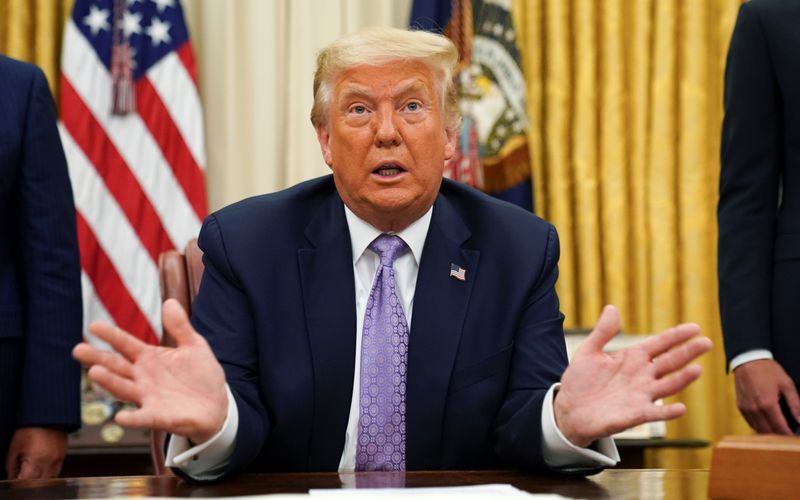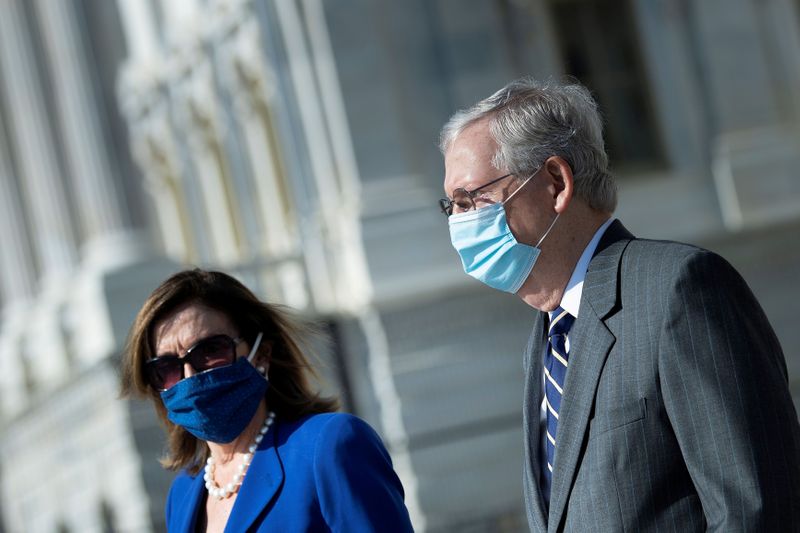By David Morgan
WASHINGTON (Reuters) - President Donald Trump said on Friday that he is ready to move stimulus money into a U.S. economy hard hit by the coronavirus crisis, but blamed Democrats for holding up a deal in talks that broke down a week ago.
The Republican-led Senate and Democratic-controlled House of Representatives went into an informal recess after last week's negotiations ended with the parties $2 trillion apart. However, the leaders of both parties said they could recall their members with 24 hours notice if a deal emerged.
At a Friday news conference, Trump said he was prepared to provide Americans with direct payments as well as rental assistance and money for small businesses, state and local governments.
"I'm waiting for the Democrats to approve it," the president said. "Democrats are holding that up, right?"
Aides to House Speaker Nancy Pelosi and Senate Democratic leader Chuck Schumer were not immediately available for comment.
Trump's move came a day after he said he was blocking talks to prevent Democrats from providing more money for the Postal Service or state and local election officials struggling to prepare for Nov. 3 elections during a pandemic. On Friday, he signaled that he might approve funds for the Postal Service.
Last Saturday, Trump signed a series of executive measures on issues including unemployment benefits that economists dismissed as too limited to have a significant effect on an economy hammered by the pandemic. They have yet to be carried out.
The $2 trillion chasm between the Democrats' $3 trillion proposal and the Republicans' $1 trillion offer includes wide gaps in funding for schools, aid to state and local governments, and unemployment pay.
An impasse over $600-a-week in enhanced unemployment benefits, which expired on July 31, kept financial markets on edge as the Commerce Department reported weaker-than-expected July retail sales growth due to the spiraling pandemic and the end of the enhanced jobless payments.
The unemployment payments had helped buttress consumer spending, according to Federal Reserve officials and economists. Trump tried to act alone last Saturday with a memorandum proposing an additional $300 per week in unemployment, with states paying claimants another $100 per week, though economists questioned the effectiveness of the limited measure.
Meanwhile, the number of U.S. coronavirus infections approached 5.3 million on Friday, with deaths topping 167,000.
U.S. share prices fell earlier this week after Republican Senate Majority Leader Mitch McConnell and House Speaker Pelosi disclosed there were no coronavirus talks scheduled.
Democrats offered to reduce their proposal by $1 trillion during negotiations with White House officials last week. The White House rejected the offer.

A Reuters/Ipsos poll published early this week found that Americans blame both parties for the inaction.
